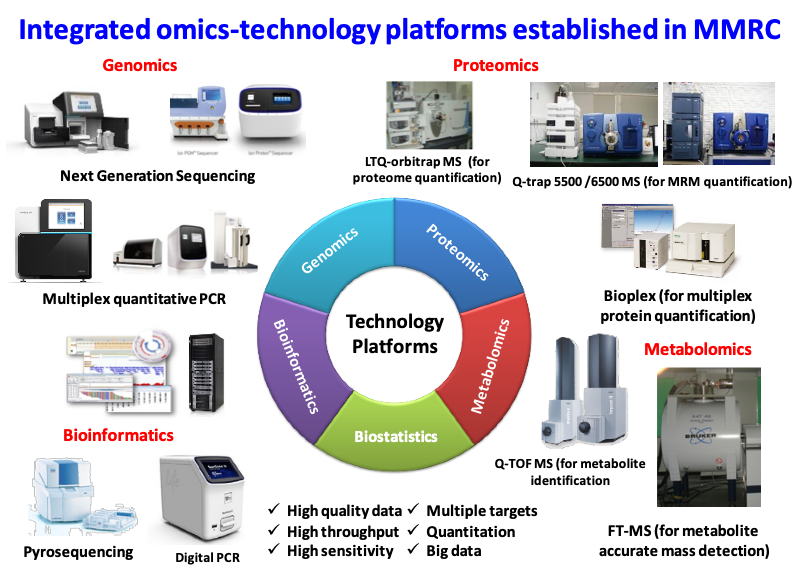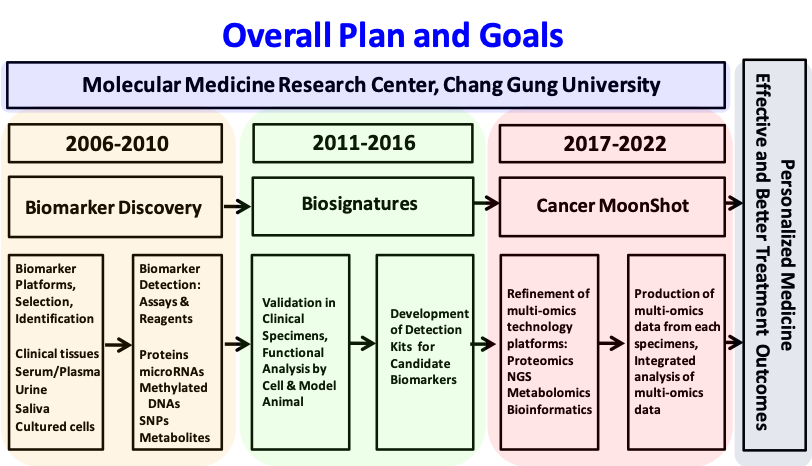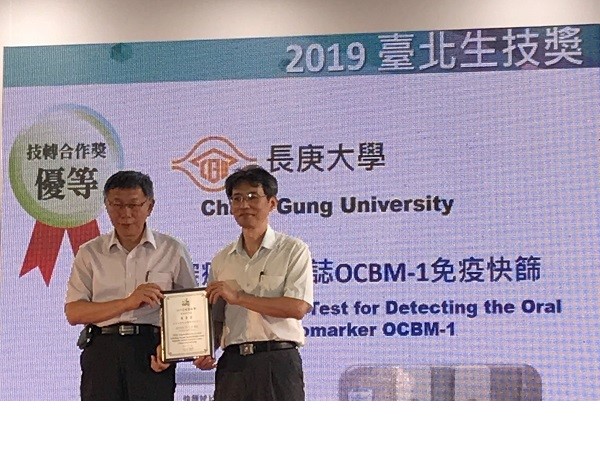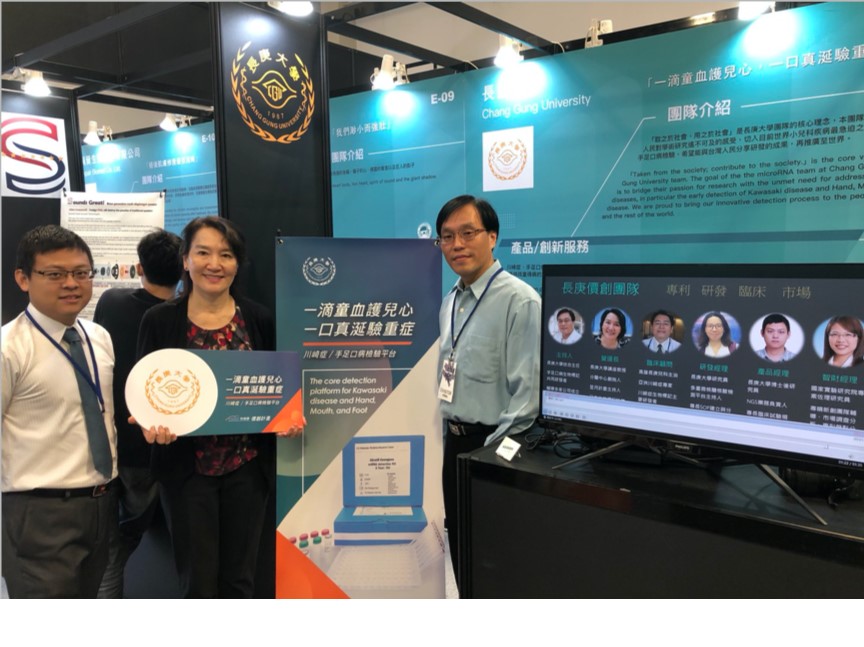About us
Molecular Medicine Research Center (MMRC), Chang Gung University
Our center is built to promote and upgrade research capacities of Chang Gung University (CGU), with emphasis on Disease Biomarkers. MMRC is the only academic center in Taiwan with its research focusing on Disease Biomarker and Translational Medicine. Soon after its establishment at the end of 2005 by Prof. Yu-Sun Chang, MMRC obtained supports from the “The Top Universities program” (2006-2017) and “The Featured Areas Research Center Program within the framework of the Higher Education Sprout Project” (since 2018) sponsored by the Ministry of Education, Taiwan. In MMRC, several core facilities (proteomics, genomics, NGS, metabolomics, bioinformatics, biostatistics and pathology) and advanced omics-based technology platforms have been well established to support the systematic identification of disease/tumor specific macromolecules (biomarkers), including proteins, mRNA, microRNA, methylated DNA, single nucleotide polymorphisms (SNP) and metabolites.
Focusing on important diseases in Taiwan (such as oral cancer, colorectal cancer and acute/chronic kidney disease), MMRC adopted the Biosignatures research concept and study design, which was introduced and initiated by Prof. Lee Hartwell (Nobel Laureate in Physiology or Medicine 2001, Distinguished Chair Professor, CGU), to compare the reported candidate biomarkers against one another in adequate case and control body fluid samples by omics-based quantitative approaches. Currently, several promising biomarker panels have been verified, including a four-protein panel for detecting oral cancer and monitoring high-risk oral potentially malignant disorders (OPMDs) through a readily available biofluid, saliva (Saliva Protein Biomarkers to Detect Oral Squamous Cell Carcinoma in a High-Risk Population in Taiwan. Proc Natl Acad Sci USA. 2016 Oct 11;113(41):11549-11554). The technology for quantifying this biomarker panel has been transferred to a biotech company, and this academia-industry collaborative effort has been promoted for commercialization of immunoassay kits for oral cancer detection in saliva.
Through tight collaborations with Chang Gung Memorial Hospital and Chi-Mei Hospital, MMRC has built up strong research capabilities in the areas of genomics, proteomics and metabolomics, and received international recognition on cancer biomarker discovery and validation. MMRC has established a former partnership with the National Cancer Institute of the United States on the Cancer MoonShot project. Since 19 September 2016 at the United Nation Foundation’s Social Good Summit, the U.S. Vice President Joe Biden has announced progress on his global vision for the Cancer Moonshot initiative, and the MMRC of CGU has signed a Memoranda of Understanding (MOU) with National Cancer Institute, NIH, USA in September, 2016. A consortium named “International Cancer Proteogenome Consortium (ICPC)” was then formed to promote this worldwide joint effort on cancer research to fight cancer. Currently, this consortium has 33 institute members from 13 countries (https://proteomics.cancer.gov/programs/international-cancer-proteogenome-consortium). The MMRC is very much honored to be a partner of the Cancer MoonShot project. The scientific collaborations mainly focus in the field of clinical proteogenomic studies and their translation to cancer care with a goal to find a cure for cancer by 2030. Proteogenomics is the study of genes and their protein products, specifically their role in cancer development and progression, and possible targets for therapies.
In addition to be a partner in the Cancer MoonShot project, MMRC has officially participated in the Clinical Proteomics Tumor Analysis Consortium (CPTAC) in 2015, which also led by National Cancer Institute, NIH, USA. Through both CPTAC and Cancer MoonShot project, we can work with top international groups in the areas of genomics, proteomics and bioinformatics. Most importantly, we can evaluate the directionality of mutated gene-protein in clinical samples and compared the variations between different ethnic groups. The information derived from the above studies allows us to confirm and validate the biological and pathological roles of potential biomarkers, which can directly provide information to the control of disease mechanism, elicit more precise classification of disease types, and serve as potential therapeutic targets in future drug designs.




